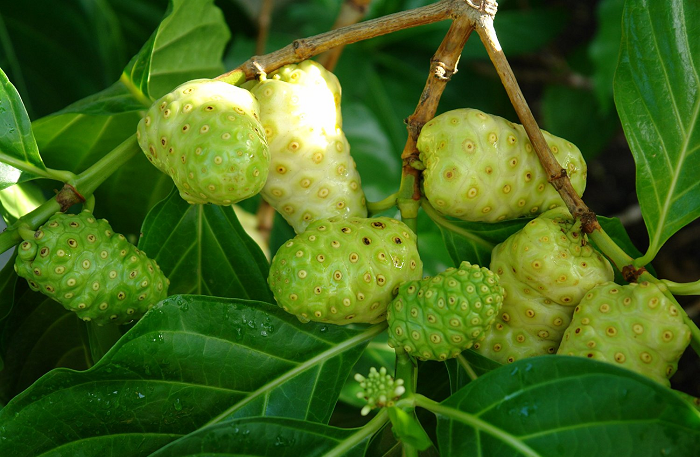
Does noni fruit treat diabetes, what’s the evidence?
What have you heard about diabetes? An incurable medical condition? A disease that is chronic or lifelong?
Advertisement
Correct! but did you know diabetes can be managed and you can actually live healthy, and enjoy a fruitful long life without developing any diabetes complications?
Many people entertain needless anxieties and fear when diagnosed with diabetes, others succumb to depression upon hearing that they have this disease, often due to numerous misconceptions and inadequate knowledge about the condition. They are willing to try ‘anything’ and suddenly become gullible out of desperation.
The good news is that, better options do exist. Approved lifestyle changes and dietary modifications have been shown to effectively contribute to the management of diabetes. The Noni fruit, among other foods, is believed to possess peculiar properties important in diabetes management.
The fruit
Noni fruits are multiple, oblong, ovoid and pyramidal drupes. They are soft and watery with a cheesy aroma (bad taste and smell) and have a colour range from white, greenish white to yellowish white.
Nutritionally, noni fruit contains vitamins such as B1, B2, B3, C, E, folate and beta-carotene and minerals, including calcium, potassium, iron and phosphorus. The fruit can be eaten when ripe or processed into fermented or unfermented juices, puree, tea, capsules, lozenges or syrups. The juice or puree can be sweetened to enhance its taste.
Health claims
These stem from the various compounds noni contains. For example, it contains prexeronine known to produce endorphins that can cheer one up and improve the state of mind. Noni also contains damnacanthol which is said to stimulate the production of lymphocytes that defend the body against diseases. Moreover, its scopoletin relieves pain and supports the cardiovascular system. Its xeronine content also supports body regeneration. Perhaps this is the reason for noni’s blood sugar lowering effect, especially in the case of type one diabetes where the cells for insulin production are destroyed.
What then is diabetes?
Diabetes mellitus is a group of metabolic diseases characterised by high blood sugar levels resulting from defects in insulin secretion, insulin action or both. It is a chronic health problem with devastating, yet preventable consequences.
In the year 2015, two thirds of people with diabetes in Africa were undiagnosed. According to the World Health Organisation, in 2016, diabetes prevalence was 4.6 per cent and 5.0 per cent among males and females, respectively, in Ghana.
The management of diabetes includes lifestyle modification (appropriate diet and regular physical activity); oral medications and/or insulin therapy.
The evidence
Some studies have shown blood sugar lowering effect of noni. Recent studies in rats found that noni juice demonstrated a synergistic action with insulin while others using fermented noni juice revealed a significant reduction in blood glucose levels. Nonetheless, there are controversies surrounding these claims based on the following factors:
- Differences in the sample type: fruit, leaves, bark of the tree or other parts of the plant used for the experiment.
- The amount of noni used and duration was unknown in most of the studies.
- Studies among humans found no significant effect on blood sugar and lipids.
- Therefore, further research in this area is required to reach more precise conclusions.
The Ghana situation
Noni is available in Ghana and it comes as pure juice, tea or fruit sold in the markets and pharmaceutical shops. No known published study on noni and diabetes has been done in Ghana. People are, however, aware of the potential health benefits of noni. The danger, however, is when noni products are being marketed or taken as medicines to treat or cure medical conditions, including diabetes.
Conclusion
Noni does not treat diabetes but may contribute to the overall health. It is a fruit and should form part of the overall diet of an individual; it should not be treated as a drug. Diabetics are not restricted from eating fruits, for that matter noni. However, exercise caution, especially when the juice is sweetened. The rule of the thumb is moderation and variety.
Currently, there is no evidence that diabetes can be cured but it can be controlled. There is also not enough evidence to support the use of noni to lower blood sugar levels in humans. Therefore, diabetics must of necessity consult with healthcare providers such as the dietitian, physician or pharmacist, before using any dietary supplement, including noni.
The good news for diabetics is that diabetes is like any other disease which demands caring for oneself, seeking medical attention, adhering to treatment, self monitoring of blood glucose, healthy eating and regular physical activity. The complications can be prevented, delayed or managed. Having diabetes is not a death sentence and you can live well with diabetes!



